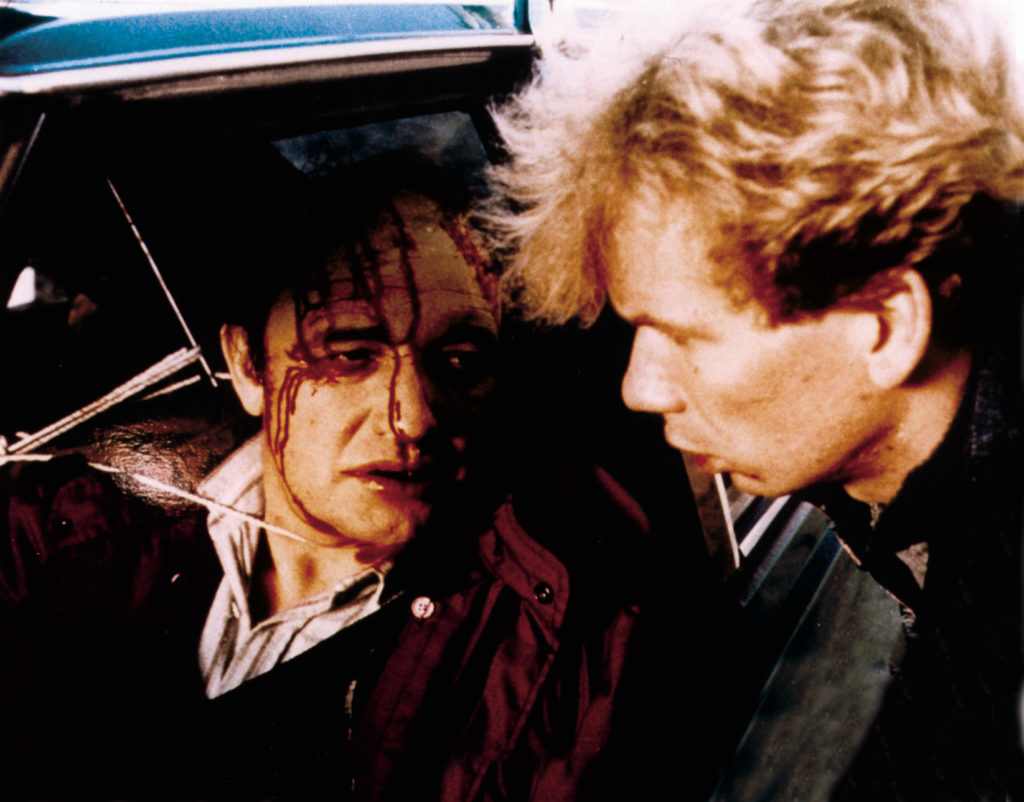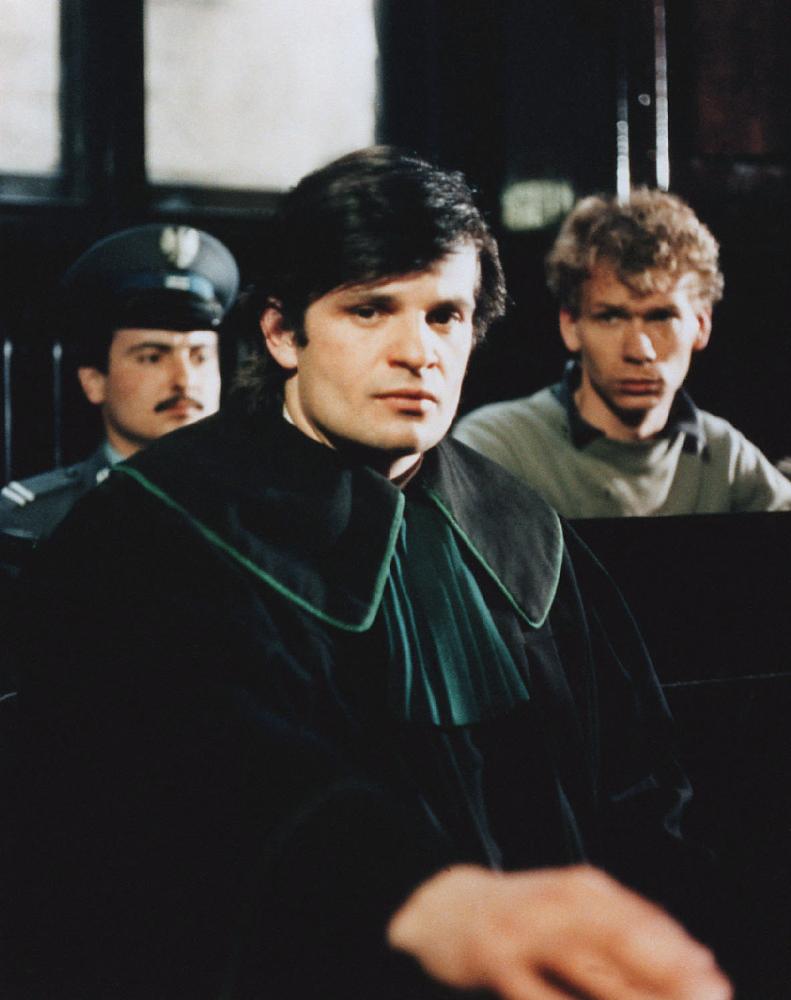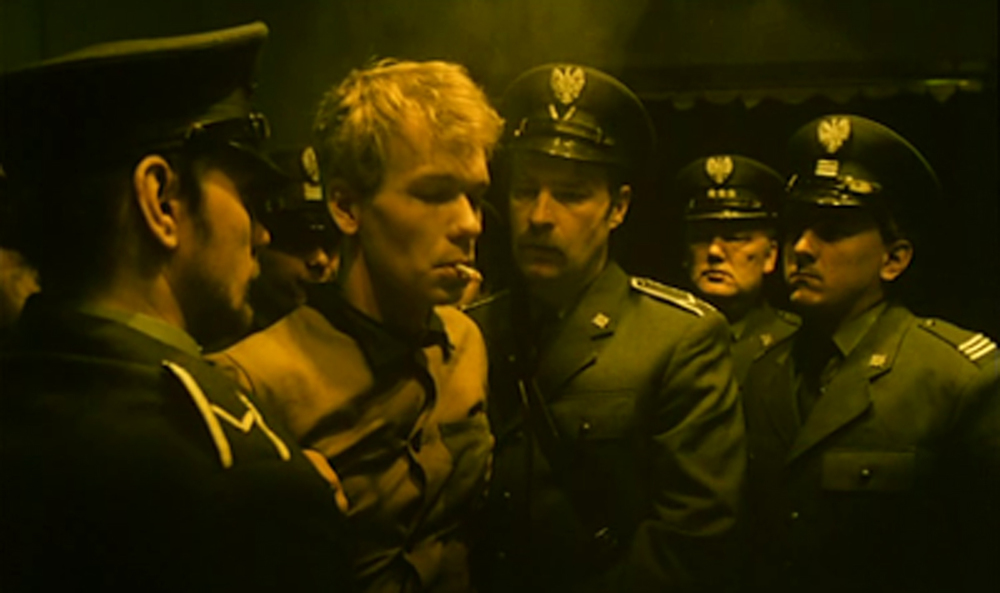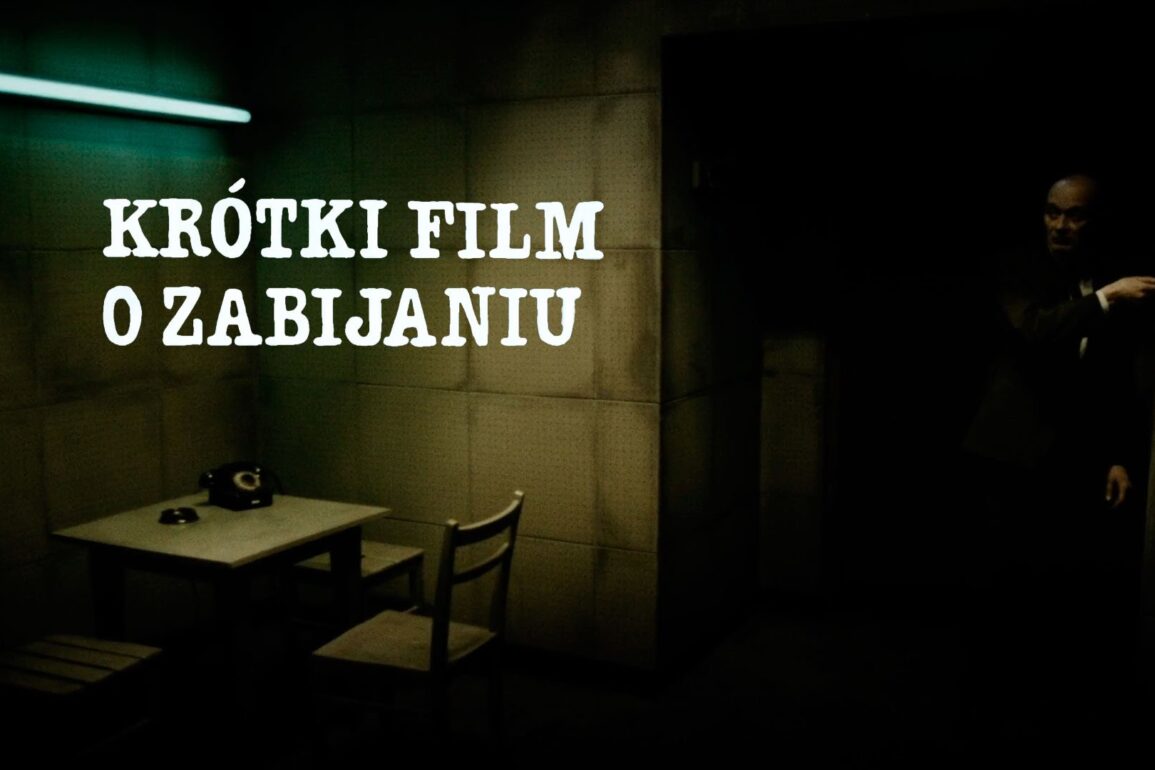Cinema has long been exploited as a medium for socio-political commentary and delivering underlying messages. But seldom do we come across filmmakers who really produce multilayered, technically advanced movies while staying true to their cause. Polish director Krzysztof Kieślowski is one such rare master who effortlessly crafted sensational movies, comparable to the best European artistic creations of all times. His 1988 feature A Short Film About Killing (Krótki film o zabijaniu) is a quintessential cinematic gem that immaculately delivers a powerful critique.
The movie is set in Warsaw during the last years of the Communist era and the plot is exceedingly simple. Waldemar (Jan Tesarz) is a cab driver in the city who savoured the lifestyle his profession offered. Jacek (Miroslaw Baka) is a vagabond who roams around in the city and takes sadistic pleasure in causing harm to others for no apparent reasons. It is gradually revealed that he is traumatized by his sister’s death and his mother’s sufferings. On a fateful day, Jacek boards Waldemar’s cab and asks him to drive to a remote location outside the city. On arriving there, Jacek murders Waldemar, first by choking him with a rope and then smashing his head with a rock. He is later imprisoned and brought to trial. Piotr (Krzysztof Globisz) is an idealist young lawyer who defends Jacek. It is the first case of his professional career and he takes it, in spite of having negligible chances of winning. He argues strongly against death sentence to Jacek but ultimately fails. Jacek is finally executed by hanging. The paths of the three unrelated characters get intertwined throughout the movie. Through the ingenious cinematography of Slawomir Idziak, Kieślowski shows us a bleak picture of post-Cold War Warsaw. The palette of sepia, green and grey filters and the obscuring of the frame edges emphasize the depressing mood throughout the film. These deliberate effects served perfectly to capture the miserable world in which the characters dwelled. There is no significant tracking shot in the entire film allowing the viewer to carefully focus on the detailing of the characters and their actions. The 84-minutes drama A Short Film About Killing begins with an image of a hanging dead cat occupying one half of the screen, while the other half is completely black. The title of the film gradually appears over the screen and we are instantly transported to the world the filmmaker wants us to explore. The narrative has a semi-documentary touch to it.
Through the ingenious cinematography of Slawomir Idziak, Kieślowski shows us a bleak picture of post-Cold War Warsaw. The palette of sepia, green and grey filters and the obscuring of the frame edges emphasize the depressing mood throughout the film. These deliberate effects served perfectly to capture the miserable world in which the characters dwelled. There is no significant tracking shot in the entire film allowing the viewer to carefully focus on the detailing of the characters and their actions. The 84-minutes drama A Short Film About Killing begins with an image of a hanging dead cat occupying one half of the screen, while the other half is completely black. The title of the film gradually appears over the screen and we are instantly transported to the world the filmmaker wants us to explore. The narrative has a semi-documentary touch to it. Jacek and Waldemar belong to the lower strata of society, characterized by a lack of morality. The former ditches certain people for his own benefits while the latter has a strong affinity towards violence. Both the victim and perpetrator are portrayed in an impeccably unsentimental manner. The director subtly shows us how crimes are rooted in the grotesque effects of class societies. The violent nature of Jacek can be traced to the emotional sufferings he went through following the death of his sister, living in an unintelligible world. The murder he commits is mindless and devoid of any motive. But, in spite of the brutality, Jacek is capable of normal human behaviour as we see him playing with two young girls in a cafeteria. The conversations between Jacek and Piotr are compelling and consist of brilliantly written dialogues.
Jacek and Waldemar belong to the lower strata of society, characterized by a lack of morality. The former ditches certain people for his own benefits while the latter has a strong affinity towards violence. Both the victim and perpetrator are portrayed in an impeccably unsentimental manner. The director subtly shows us how crimes are rooted in the grotesque effects of class societies. The violent nature of Jacek can be traced to the emotional sufferings he went through following the death of his sister, living in an unintelligible world. The murder he commits is mindless and devoid of any motive. But, in spite of the brutality, Jacek is capable of normal human behaviour as we see him playing with two young girls in a cafeteria. The conversations between Jacek and Piotr are compelling and consist of brilliantly written dialogues.
Capital punishment, on the other hand, is shown to be an act of cold-blooded murder by the State. It is as horrific and devoid of compassion as the killing of Waldemar. It is the Government’s way of justifying itself and maintaining its popularity when it fails to establish a crime-free society. While the first murder was unanticipated by the victim, Jacek had complete knowledge of his imminent death. Kieślowski underlines the fact that systematic killing is far more barbaric and barely accountable as compared to the murder committed by Jacek. The institutions for delivering justice end up replicating the heinous act of the criminal. The images of both the cases leave the audience devastated. A Short Film About Killing is a strong argument against capital punishment as well as a study of alienation of the masses, prevalent in the last days of socialism. And it successfully makes its point without even stating it explicitly, without ramming it down the throat of the audience. Released at a time coinciding with huge debates about human rights, A Short Film About Killing was instrumental in the abolition of death penalty in Poland later.
A Short Film About Killing is a strong argument against capital punishment as well as a study of alienation of the masses, prevalent in the last days of socialism. And it successfully makes its point without even stating it explicitly, without ramming it down the throat of the audience. Released at a time coinciding with huge debates about human rights, A Short Film About Killing was instrumental in the abolition of death penalty in Poland later.
Disturbing, evocative, somewhat Kafkaesque and yet beautiful, Kieślowski’s masterpiece remains relevant even today. A lot of developing nations around the world still have capital punishment. It’s not yet too late to analyze critically about the abstract concept of civilization.
Also Read – Christopher Nolan : Imagining The Impossible

